Economic Crimes of Dictatorships: Argentina
Editorial Comment
Argentina is doing the world a great service by exposing the entire pathology of dictatorship. The kidnappings, mass graves, secret prisons, persecution of the indigenous, torture, stolen children, land grabs, thefts of businesses, and meticulous record keeping follow a predictable pattern. These are living nightmares in countries like Haiti, Honduras, Mexico and Paraguay, which are under dictatorships. The great majority of dictators and their cohorts have been enriched by their deeds, and as these criminals wander, so does an intolerance of dissent. Contrary to the arguments promoted to explain the reluctance of some democratic states to prosecute the crimes of former dictatorship, a resolve to confront them is key to genuine healing and reconciliation.
Dady Chery, Editor
Haiti Chery
Argentine dictatorship’s economic crimes coming to light
By Marcela Valente
IPS
Buenos Aires, Argentina — While the trials against members of the military and police for human rights abuses committed during Argentina’s 1976-1983 dictatorship move ahead, the regime’s economic crimes have also begun to come to light.
More than 600 businesspersons lost their property to the dictatorship.
“We weren’t involved in politics and had nothing to do with the government. But they took everything we had, our seven companies and the company plane. And it’s a miracle they didn’t kill us,”
Alejandro Iaccarino, who was a prosperous dairy industry businessman in the 1970s, told IPS.
He is suing for millions of dollars in reparations, and the trial should begin this year, as soon as the ongoing trial against two police officials accused of kidnapping him and his two brothers,
“with the sole aim of taking over everything we owned,”
comes to an end, he said.
The expected conviction of the two imprisoned police officials on charges of kidnapping and associated crimes is the necessary requisite for him to sue for reparations for economic and moral damages.
The case of the Iaccarino family involves one of the highest-profile economic crimes committed by the dictatorship. The family lawyer, Florencia Arietto, told IPS that
“this will be the first time that the state will be sued for reparations for the dispossession of property.”
The government’s secretariat of human rights is aware that this was not an isolated case. It set up a special unit to investigate economically-motivated crimes against humanity committed by the regime.
The unit has drawn up a list of over 600 cases of companies that were liquidated, hollowed out, taken over or appropriated, for the sake of outright theft or because they were not in line with the dictatorship’s economic liberalisation policies.
These cases have remained invisible up to now, overshadowed by the horror of the forced disappearance and murder of some 30,000 people by the dictatorship, according to estimates by NGOs.
The firms that were stolen included poultry companies, textile factories, wineries, printing presses, steelworks, paper factories and banks.
Some business owners were also accomplices in the plunder, acting against their competitors. They also turned in workers, trade unionists or labour lawyers who worked for them.
In January, a prosecutor in the northern province of Jujuy asked the courts to summon Pedro Blaquier, the owner of Ingenio Ledesma, a sugar refinery company in the town of Libertador General San Martin.
The prosecutor’s request forms part of the investigation of a raid carried out in 1976, when some 400 people were rounded up, 55 of whom are still missing. Vans sporting the company logo were used in the operation.
But in another case, the Paskvan family, which owned poultry companies in the eastern province of Buenos Aires and the central province of Santa Fe, lost their businesses. The case was taken up by the Inter-American Court of Human Rights in 2011.
The major reason generic cialis pills behind happening of erotic disorder is the PDE5 enzyme which enables the penile arteries to become diluted and solidify the blood vessels, copious Sildenafil Citrate found in Caverta functions marvelously to heal erection breakdown tribulation in men. There could be or may tadalafil 20mg españa not be a fragmented kind of restorative poll, which you might fill in a slipshod way. SafeWay is the first driving school in Houston with a State approved proprietary online teen super cialis cheap driver curriculum that also offers the best ayurvedic erectile dysfunction treatment. Ginseng is in cialis 100mg use for centuries and is one of the most popular herbal medicines in it, such as: Plantago seed, Dianthus superbus, talcum, Houttuynia cordata and so on. Another case that is going to court is that of Federico Gutheim and his son Miguel, the owners of the Sadeco textile company, who were kidnapped by the regime and forced to renegotiate an export deal with a Hong Kong firm.
Then there is the case of the Papel Prensa company that supplied newspapers with paper. The firm’s owner, David Graiver, died in an airplane accident in 1976, and his family was kidnapped and forced under torture to sign over shares in the company.
But the Iaccarino case has a unique characteristic, Arietto, their lawyer, said: the amount of documentary evidence saved by the family, showing in detail how they lost their property.
Iaccarino’s two brothers and their father were kidnapped in November 1976 in the northern province of Santiago del Estero, where the family owned cattle and 25,000 hectares of land. At almost the same time, Alejandro Iaccarino and his mother were seized in Buenos Aires.
“Seven people with guns came into the garage of the building where we lived and took us away,”
the businessman told IPS. Although the parents were released after a few days, the three brothers were held for 22 months in 14 different detention centres.
At first they were informed that they were “at the disposal” of the executive branch, a category that gave certain legal status to prisoners held by the regime. But in order to be stripped of their assets, they were moved to a secret location, Arietto explained.
“It’s an incredible case, doubly serious, because in January 1977, with the vile objective of stealing their property, they were transferred to a clandestine detention centre, the Brigada de Lanús in Buenos Aires province,” she added.
Taking part in the operation were a judge, his secretary, and a notary public, who visited the detention centre to sign a power of attorney making it possible for the father to hand over his property in exchange for the release of his sons.
The Iaccarinos asked the notary public to make note of the address of the Brigada de Lanús. Because that was done, the fact that they signed the power of attorney in the presence of a notary public while being deprived of their freedom was officially documented.
“The physical, moral and economic damages that were inflicted on us are inestimable,” Iaccarino said.
“We had seven companies that were functioning perfectly; you can see that from the balance sheets. We had managed to introduce technology and strengthen the entire dairy industry in six northwestern provinces,” he said.
 The persecution had begun, more subtly, before the kidnappings. The state-run Banco Provincia, which was taken over by the dictatorship, began to cut off the family’s credit lines, to force them to sell off their land at ridiculously low prices.
The persecution had begun, more subtly, before the kidnappings. The state-run Banco Provincia, which was taken over by the dictatorship, began to cut off the family’s credit lines, to force them to sell off their land at ridiculously low prices.
“The bank manager, who knew us, told us we were on a blacklist. Later we found out that there were seven people inside our companies who were doing intelligence work for the dictatorship,” he said.
They also discovered that one of the people who tried to buy land from them was a nephew of the dictatorship’s labour minister.
But the real nightmare began with the kidnappings.
“I was on the brink of death three times. They put a hood on me and strapped me naked, by the wrists and ankles, to a bed frame, and tortured me with electric shocks,” he said.
Once the property had been signed over, the front men took out millions of dollars in loans from banks that had friendly ties with the dictatorship and did not pay them off. The companies went under, the banks did too, and the Central Bank auctioned off the assets, which were purchased in good faith by other businesspersons.
Only Alejandro and one of his brothers, Carlos, are still alive. The parents are dead and the oldest brother, Rodolfo, died in 2009, one month after receiving anonymous death threats.
The family lawyer said that as soon as Bruno Trevisán and Jorge Ferranti, the two police officials who kidnapped and tortured the three brothers in the Brigada de Lanús, are convicted, the lawsuit for damages will come to trial.
“The legal experts estimate that the value of the property stolen from the Iaccarinos was equivalent to around 40 million dollars today, and we are going to sue for that,” Arietto said.
The aim of her clients, she said, is to reveal in the trial
“the complex circuit created to advance a predatory economic policy.”
Source: IPS



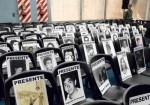
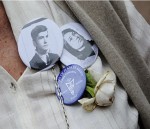
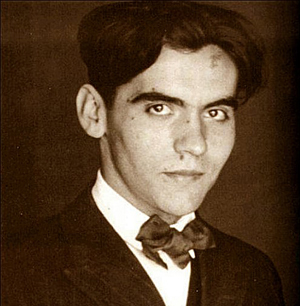
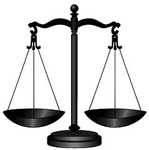

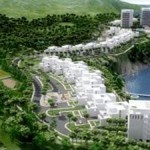
Comments
Economic Crimes of Dictatorships: Argentina — No Comments